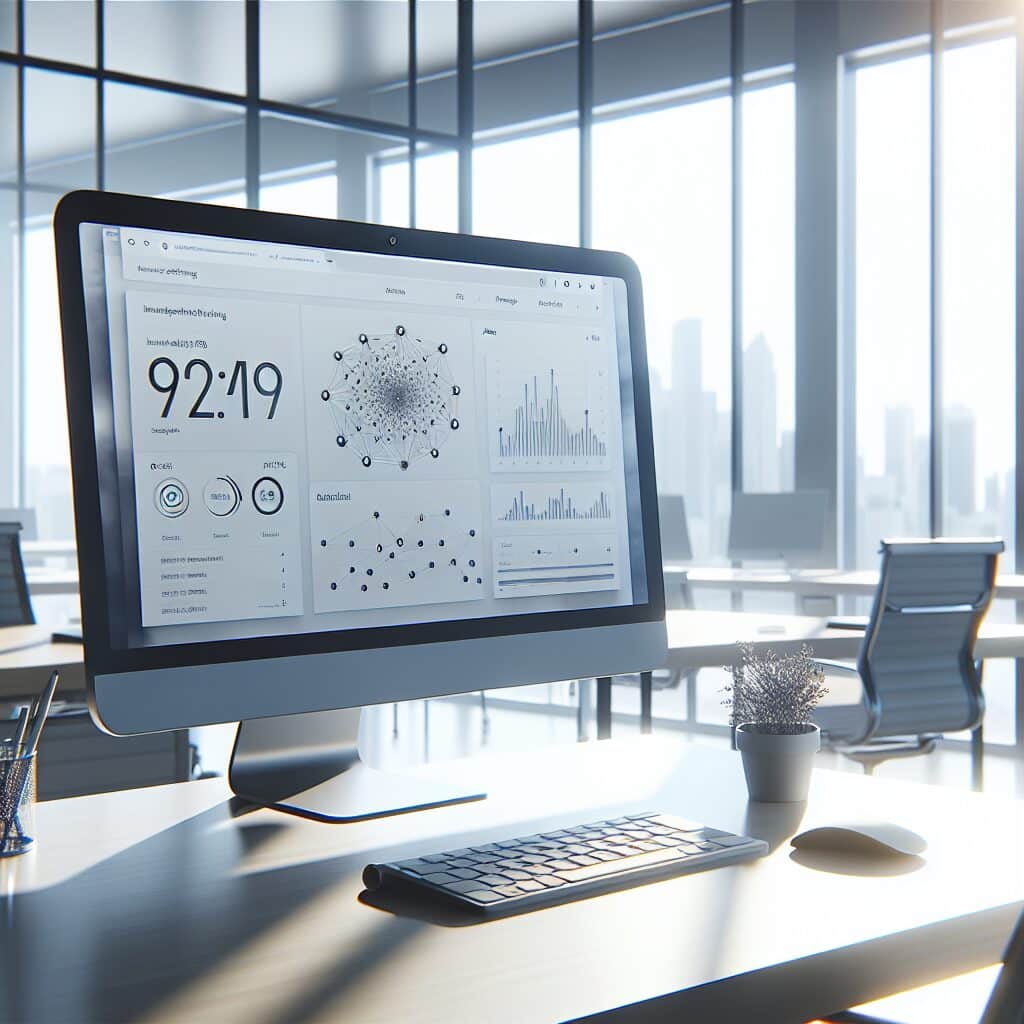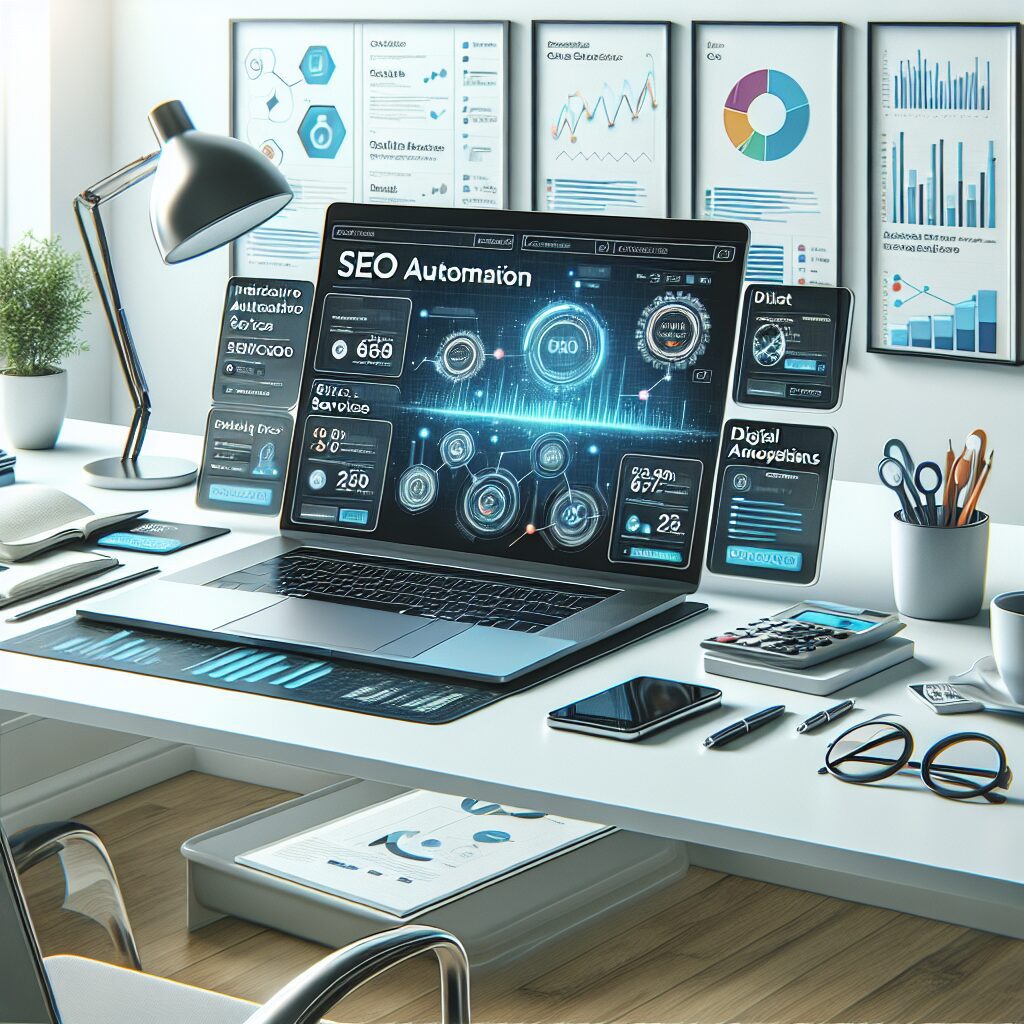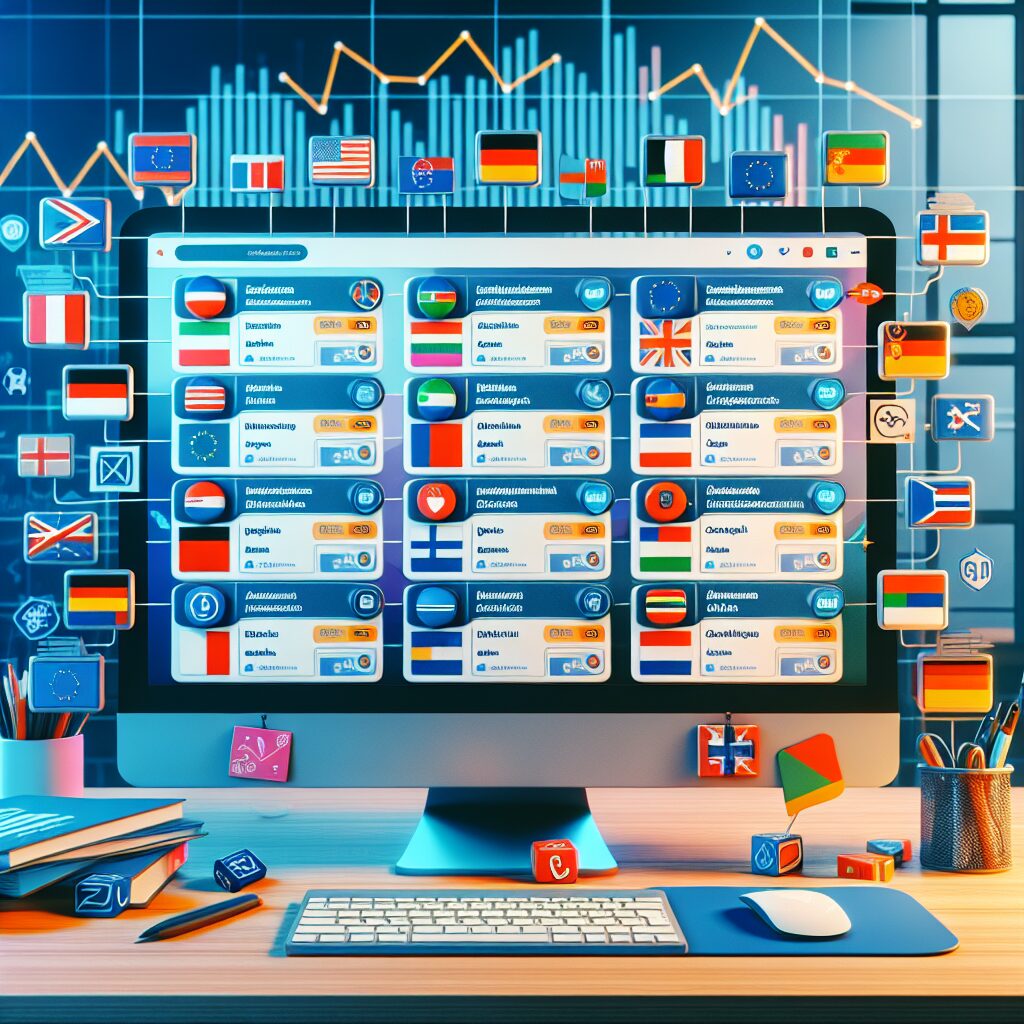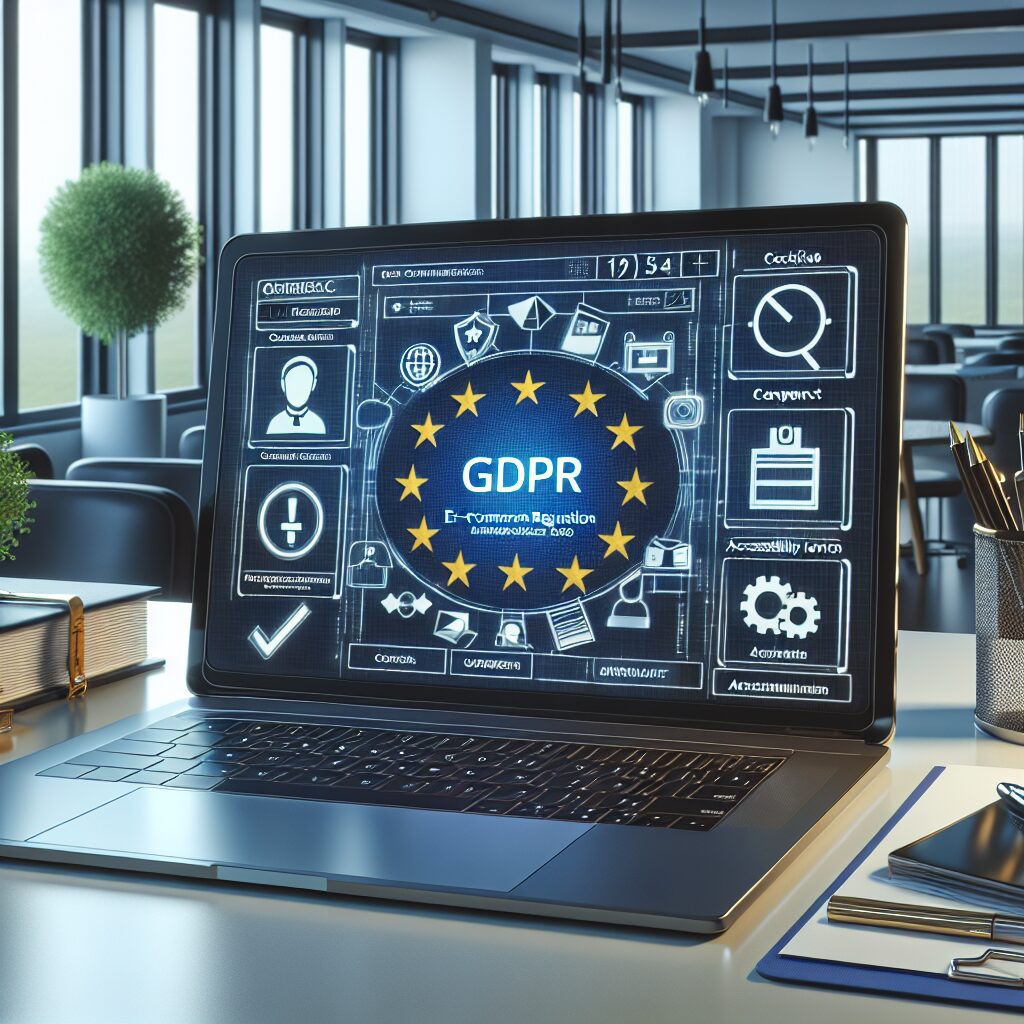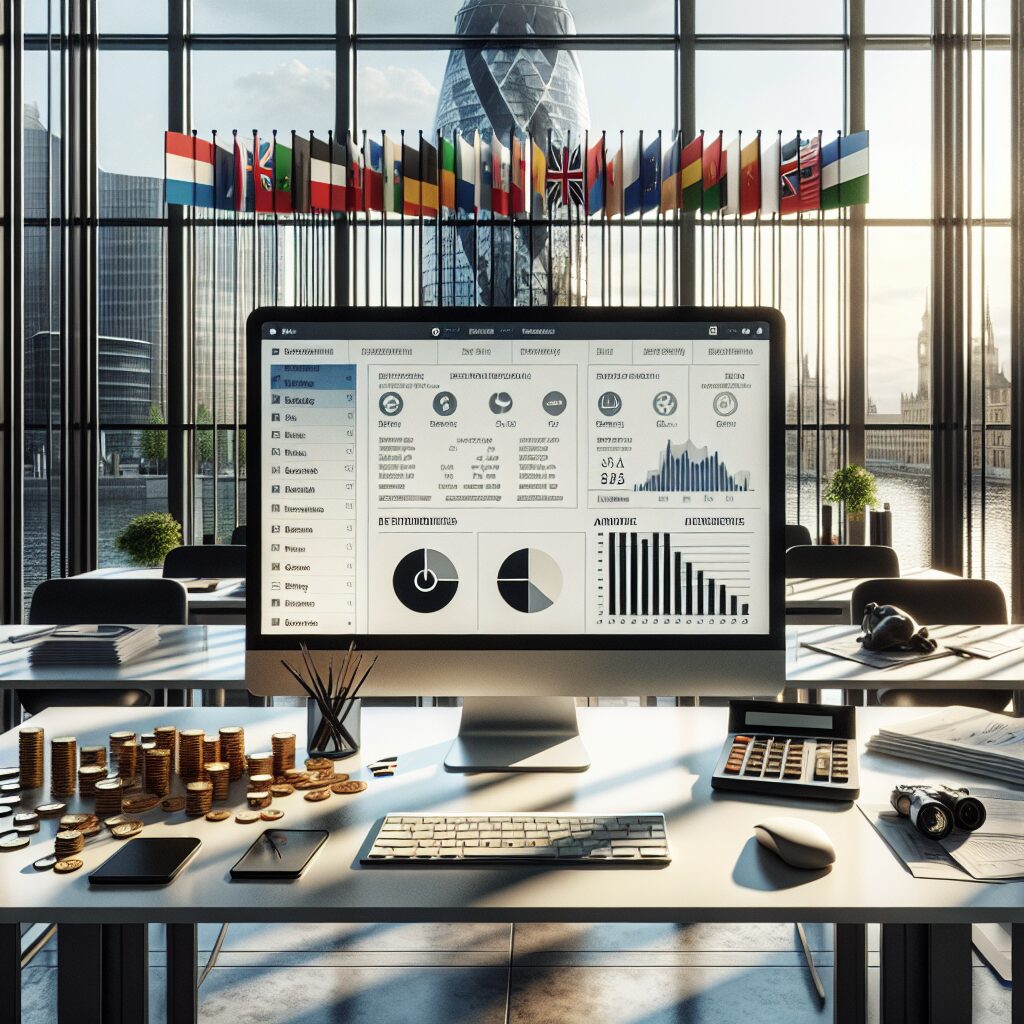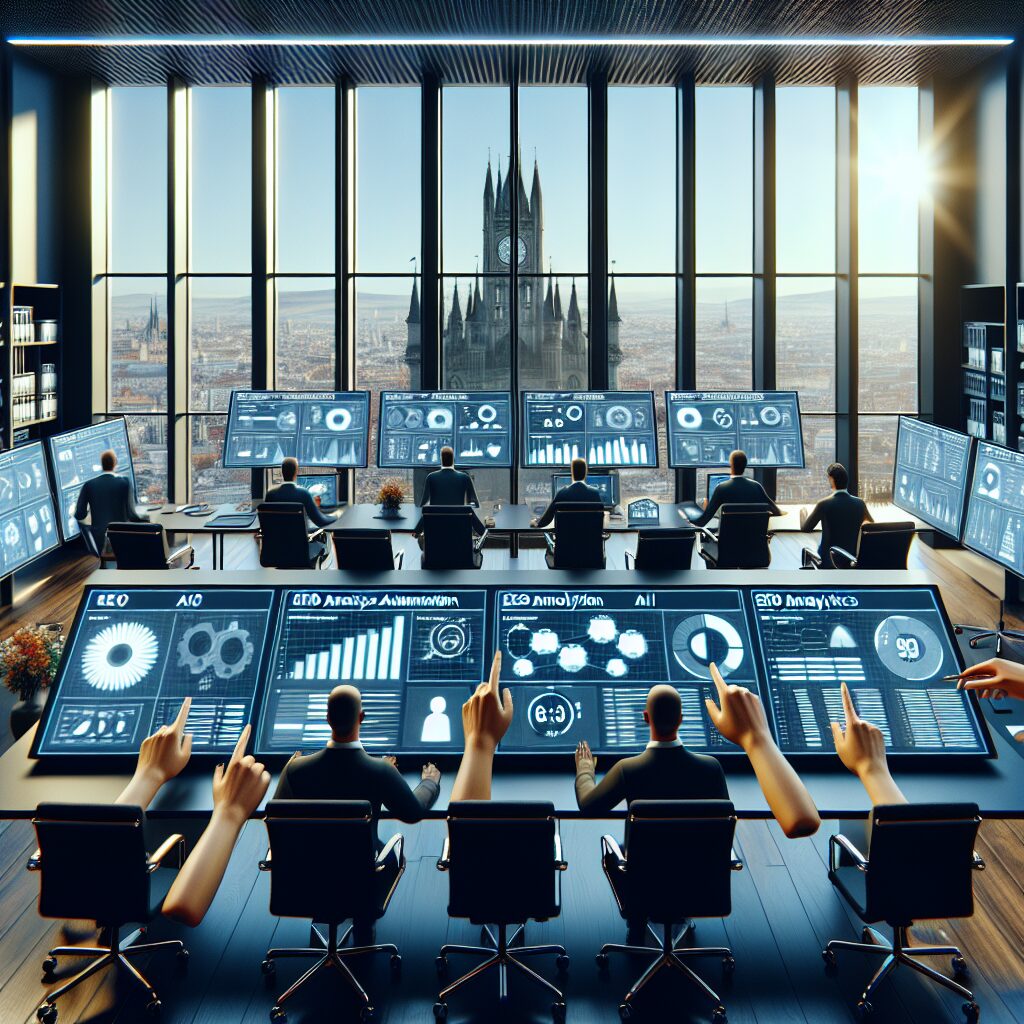About eldris
At Eldris, we automate SEO, multilingual site expansion, and EU compliance for brands scaling across Europe. Our AI-powered platform handles everything from content publishing to regulatory docs—so you don’t have to.
In This Article
- Sustainable Technology aligns innovation with ecological responsibility across industries.
- AI enables measurable and scalable environmental impact through smart analytics and automation.
- Digital transformation should intrinsically factor in sustainability goals and regulations.
- Real-time carbon tracking accelerates ESG reporting and compliance.
- Tech enables businesses—large and small—to engage with conscious consumers authentically.
- Forward-looking organisations are already embracing data-driven sustainability leadership.
Understanding the Intersection of Technology and Sustainability
How Emerging Tech Reframes Business Goals
In today’s rapidly evolving business environment, the pursuit of Sustainable Technology stands as both a strategic imperative and a moral obligation. Businesses must reassess their operational models to align with responsible practices, where sustainability is not merely an ideal but a competitive advantage. Technology is no longer an isolated utility; it is now innately tied to ecological outcomes and resource efficiency. By leveraging data analytics, Internet of Things (IoT), blockchain, and cloud infrastructure, companies are reimagining energy consumption, materials handling, and product lifecycle management. These digital tools give rise to real-time accountability, transparent reporting frameworks, and predictive models that help circumvent ecological risk. Moreover, emerging technologies challenge conventional KPIs by integrating metrics like carbon intensity, life cycle impact, and stakeholder sustainability ratings into corporate success matrices. As such, technology plays a pivotal role in reshaping how organisations measure progress and define value in the 21st century green economy.

The Role of Artificial Intelligence in Sustainable Innovation
Real-Time Decision-Making for Greener Outcomes
Artificial Intelligence (AI) has emerged as a cornerstone of the Sustainable Technology movement. This powerful tool enables companies to engage in smart resource planning, precise demand forecasting, and responsive system automation, all essential for achieving sustainability benchmarks. With AI, businesses can monitor energy consumption patterns and optimise usage in real time, reducing both waste and cost. Smart grids integrated with machine learning not only forecast electricity demand but also dynamically balance energy loads, incorporating renewable sources as availability shifts. In logistics, AI algorithms streamline transport routes, reducing fuel consumption, emissions, and idle time. Meanwhile, in manufacturing, AI-driven maintenance anticipates equipment failures, leading to reduced downtime and longer machinery lifespans. These capabilities extend beyond the walls of individual organisations. AI tools empower suppliers and partner networks to model and simulate emissions-reduction scenarios, offering a coordinated and systemic approach to sustainable innovation. As organisations embrace AI, they move beyond compliance into leadership within the global green agenda.
“Artificial Intelligence is more than a tool—it’s a catalyst. With real-time insights and adaptive learning, AI positions companies to innovate while upholding climate commitments.”
Key Benefits of Sustainable Business Technologies
Integrating Sustainable Technology into business operations yields a multitude of advantages. Firstly, it dramatically enhances operational efficiency. Automation and digitalisation reduce errors, minimise waste, and shorten delivery cycles. These improvements translate directly into cost savings and improved margins. Secondly, sustainable tech fosters brand trust. Today’s consumers are highly attuned to environmental narratives; companies perceived as green enjoy enhanced loyalty, improved customer retention, and greater brand equity. Thirdly, it assures future resilience. As regulations tighten—such as emissions trading schemes and carbon reporting disclosures—having digital infrastructure in place ensures compliance and readiness. Fourth, there’s access to sustainable finance. Green bonds, ESG-linked loans, and impact investments increasingly reward companies with sustainable technology frameworks. Finally, there’s innovation potential. Sustainable tech opens avenues for new products, services, and circular business models like product-as-a-service or closed-loop recycling. Altogether, the adoption of Sustainable Technology is both a shield against risk and a bridge to long-term profitability and societal impact.
Case Studies: Companies Leading in AI-Driven ESG Adoption
Global leaders are already demonstrating the business case for AI-enabled ESG initiatives. Schneider Electric, for example, integrates AI into energy optimisation systems across its facilities, resulting in a 20% drop in energy intensity over five years. Microsoft leverages AI to enhance its sustainability reporting frameworks, with their “Planetary Computer” project collating biodiversity data at scale to inform conservation efforts. Unilever uses AI to predict crop yields and optimise its agricultural supply chain, leading to reduced water consumption and waste. In the automotive sphere, BMW applies machine learning to track emissions across its manufacturing process, incrementally improving material efficiency. These companies are not isolated successes—they represent a growing community of innovators embedding ESG goals into every stage of value creation. By operationalising AI within sustainability agendas, they illustrate a pragmatic path for others to follow, influencing entire sectors to think smarter, act greener, and compete ethically.
The Rise of Green Solutions in Digital Transformation
Digital transformation is evolving beyond productivity tools—it’s becoming the bedrock for sustainability leadership. Cloud providers such as AWS and Google Cloud now offer carbon-neutral server solutions, enabling businesses to migrate data with minimal environmental impact. Low-code platforms facilitate rapid prototyping of sustainable products while reducing development waste. Additionally, smart facility management systems now control lighting, heating, and utilities with extraordinary precision, boosting energy savings. Furthermore, digital twins simulate entire ecosystems of production, allowing companies to test environmental strategies without physical resource expenditure. These green digital innovations reinforce not only efficiency but also transparency—empowering stakeholders to track emissions data and usage footprints across supply chains. Notably, these systems integrate seamlessly with sustainability reporting pledges such as the Task Force on Climate-related Financial Disclosures (TCFD) or GRI standards. As businesses progress with digital initiatives, it becomes increasingly necessary to factor in environmental impact as a key design principle rather than an afterthought.
How Small Businesses Can Leverage Green Tech
Small and medium-sized enterprises (SMEs) often believe that Sustainable Technology is the domain of large corporations, but that myth is fading quickly. Affordability and accessibility of cloud computing, SaaS tools, and modular IoT systems are levelling the field. From switching to energy-efficient lighting to implementing ecommerce platforms with built-in carbon calculators, SMEs now have numerous tools to begin their sustainable journey. CRM systems can be integrated with sustainability metrics to guide socially conscious marketing, while AI chatbots can be trained to highlight eco-aware product lines. Moreover, many local and regional governments now offer grants and tax relief for green technology adoption, creating favourable conditions for small-scale transformation. By embracing Sustainable Technology, smaller businesses not only reduce cost but also differentiate themselves in a competitive marketplace where eco-conscious buyers increasingly dominate. For a helpful starting point, visit Learn more about The Role of Technology and AI in Sustainable Business Transformation and explore our toolkit tailored to startups and entrepreneurs.
Challenges and Barriers to Sustainable Tech Implementation
Despite the tangible benefits, implementing Sustainable Technology is not without difficulty. Financial investment represents a significant hurdle—capital expenditure for green tech infrastructure can be prohibitive, especially without proper ROI modelling. Additionally, there is often a skills gap. Companies may lack internal expertise to launch and maintain complex AI or IoT systems, leading to reliance on costly consultancy. Resistance to change also persists. Employee and managerial hesitation, deeply rooted in legacy systems, can stall adoption. Furthermore, data integrity and integration pose technological constraints. Fragmented or siloed data at different points of the supply chain reduce the impact of sustainable insight platforms. Lastly, compliance frameworks differ regionally, making international alignment challenging. However, by adopting a change management strategy, leveraging modular deployments, and partnering with sustainability-focussed vendors, these hurdles can be gradually dismantled. To see how other businesses have navigated these challenges, browse Read a related article.
AI for Carbon Footprint Measurement and Reduction
Carbon accounting is rapidly transforming from annual reports filled with estimates, to real-time dashboards powered by Artificial Intelligence. AI systems collect granular data on emissions from facilities, vehicles, and supply chains, synthesising it into meaningful carbon footprint profiles. Machine learning models detect anomalies, forecast sustainability gaps, and suggest corrective actions—whether optimising shipping routes, switching suppliers, or automating equipment shutdown during idle times. Some platforms directly integrate with emissions trading platforms or generate offset recommendations through verified carbon markets. Notably, these AI-driven insights drive behavioural change at all organisational levels by making carbon impact visible and actionable. Moreover, compliance with global standards like ISO 14064 and CDP becomes less laborious. In the long term, such systems catalyse not only environmental impact but risk visibility and stakeholder confidence as well. Companies investing in Sustainable Technology for emissions tracking often experience smoother ESG audits and better access to sustainability-linked financing.
The Future of ESG Technology and Compliance
As ESG regulations and frameworks become more standardised, technology’s role in compliance is cemented. Automated reporting platforms scan operations for environment, social, and governance metrics with minimal human input. Blockchain enhances traceability, providing immutable proof of sourcing practices and waste management. Moreover, Natural Language Processing (NLP) tools assist legal teams in decoding sustainability legislation across jurisdictions and industries. With upcoming EU and UK regulatory shifts—such as the Corporate Sustainability Reporting Directive (CSRD)—companies that incorporate embedded compliance solutions today will sidestep cost and complexity tomorrow. The future of ESG technology is moving towards proactive governance—where systems anticipate and guide compliance, rather than retroactively correcting violations. Platforms will likely integrate with stakeholder engagement tools to manage investor inquisitions, NGO disclosures, and customer transparency portals. By embracing Sustainable Technology, businesses prepare not only to adapt but to excel in an increasingly regulated and responsible global market.
Using Tech to Engage with Sustainability-Conscious Consumers
Consumer awareness is reaching unprecedented levels, with buyers actively researching the environmental credentials of both products and organisations. Sustainable Technology allows businesses to meet this demand head-on. Eco-labelling powered by blockchain provides verifiable sourcing histories for everything from coffee beans to electric cars. Digital packaging with QR codes links to real-time carbon scores or videos of fair-trade sourcing in action. Loyalty programmes increasingly reward sustainable behaviour, gamifying ethical consumption. Chatbots trained on company ESG metrics can instantly answer consumer queries about environmental impact. Through mobile apps and web platforms, businesses can empower consumers to offset their purchases or contribute to associated sustainability projects. Such interactive experiences not only cement loyalty but extend the brand story beyond the transaction. Companies seen as transparent and engaged rise above ‘greenwashing’ accusations and create real, enduring relationships with their audience. To explore real tools aiding this shift, visit Explore How Technology Advances Sustainability in Businesses.
Trends Shaping the Future of Sustainable Innovation
As we peer into the horizon, converging trends paint a revolutionary picture for Sustainable Technology. Firstly, convergence between biodegradable materials and nanotechnology is creating smart packaging with traceable decomposition profiles. Secondly, embedded AI will soon enter materials science, enabling the discovery of composites with ultra-low carbon outputs. Thirdly, automation in agriculture—through AI drones and biosensors—will increase crop yield with reduced land and water input. Additionally, the emergence of decentralised energy networks powered by blockchain will democratise access to renewables. Peer-to-peer energy trading platforms are already showing promise in several European markets. Furthermore, the role of synthetic biology in replacing petrochemical-based inputs is expanding. These are not speculative concepts—they are near-future realities, driving the transformation of entire value systems. Businesses that continuously monitor these trends and adapt in advance stand to capture market share while leading sustainability dialogues across sectors.
Getting Your Business Ready with Eldris AI
Positioning your company for a sustainable future doesn’t have to be overwhelming. At Eldris AI, we provide tailored technology solutions designed to integrate sustainability into every layer of your operation. From predictive AI analytics for energy usage to embedded ESG compliance modules, we offer a scalable framework for transformation. Whether you’re just starting your sustainability journey or looking to enhance an existing strategy, Eldris AI delivers actionable insights, seamless integration, and measurable results. Our consultants combine deep sustainability knowledge with technical expertise to co-design roadmaps specific to your sector and growth stage. We believe sustainable growth and technological advancement must be mutually reinforcing. Partner with us and gain a competitive edge at the intersection of innovation and responsibility.
Conclusion: Transforming Sustainability with Intelligent Tech
[CONCLUSION_CONTENT]
Great guide on harnessing-technology-for-sustainable-business-practices – Community Feedback
How can technology promote sustainable business practices?
Technology enables companies to optimize resource use, reduce waste, and adopt energy-efficient solutions through automation, data analytics, and innovative tools like AI.
What role does AI play in sustainability?
AI helps organizations monitor environmental impact, predict trends, optimize operations for efficiency, and develop strategies to meet sustainability goals.
Why is sustainable innovation important for modern businesses?
Sustainable innovation drives competitiveness, helps meet ESG standards, reduces costs, and appeals to environmentally conscious consumers.



